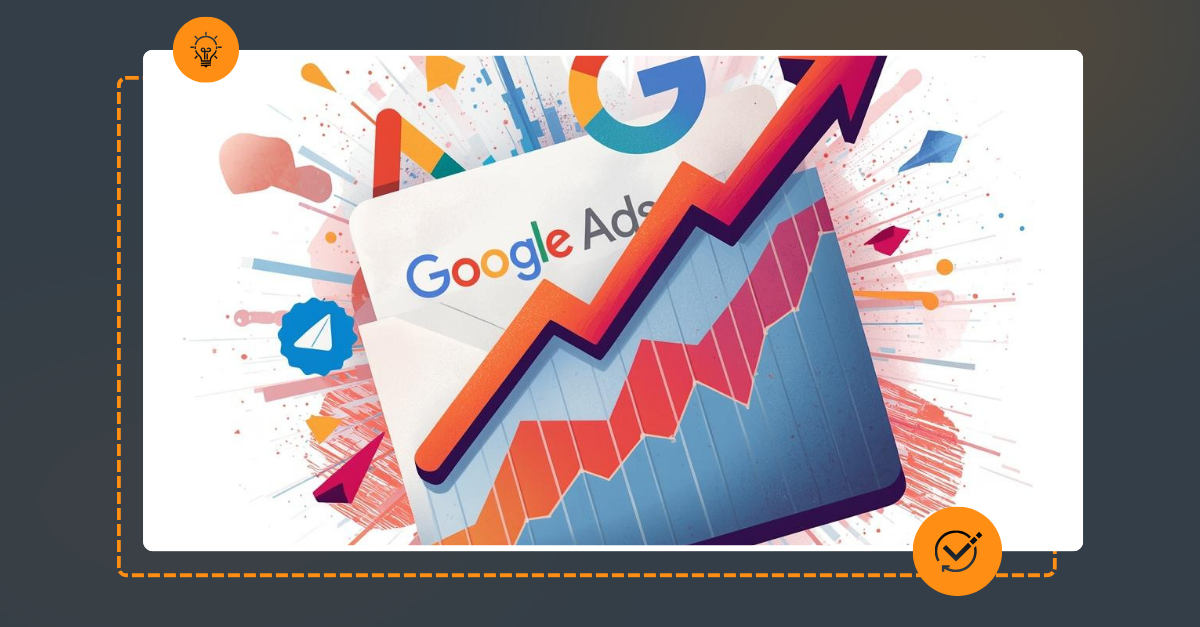Artificial intelligence is transforming more than just marketing automation — it’s changing how brands earn attention, credibility, and trust. In a recent episode of Performance Delivered: Insider Secrets for Digital Marketing Success, we sat down with Jackson Wightman, Founder of Proper Propaganda and author of The PR Playbook, to explore how AI is rewriting the rules of public relations and brand visibility.
Jackson’s PR career started over two decades ago in the world of politics. After moving into corporate communications and eventually launching his own agency, Proper Propaganda, he found himself working with forward-thinking clients at the intersection of technology and storytelling.
“As AI emerged, it became impossible to ignore,” Jackson explains. “It’s the new window of discovery on the internet, and part of our role is guiding clients through this monumental transition.”
Why PR Pros Can’t Ignore AI Search
In March 2025, Google’s share of the search market dipped below 90% for the first time in two decades — a seismic shift signaling the rise of AI-driven discovery engines like ChatGPT, Gemini, and Perplexity.
“These engines scrape everything,” says Jackson. “And over half of AI-generated answers include journalistic sources. That means PR professionals play a direct role in shaping what AI surfaces as truth.”
A Golden Window for Challenger Brands
AI’s current “answer economy” offers a unique chance for smaller, scrappier brands to compete with industry giants. Unlike Google Ads, you can’t simply buy placement at the top of ChatGPT’s results.
“Right now, credibility is earned, not bought,” Jackson says. “It’s a golden window for challenger brands to gain authority before the space becomes fully commercialized.”
This early phase rewards authentic expertise and consistent PR efforts that demonstrate real value, not just big budgets.
E-Commerce, Zero-Click Searches, and the Changing Media Model
AI’s growing role in search and shopping is reshaping the e-commerce experience. ChatGPT’s new instant checkout feature, for example, could streamline purchasing but reduce browsing and cross-selling opportunities.
At the same time, the rise of zero-click searches — where users get AI-generated summaries without ever visiting the source — poses challenges for traditional publishers. Media outlets now face the question: How do we get credit and compensation when AI uses our work to answer questions?
As Jackson notes, “AI companies need quality journalism, and journalists need visibility. There’s a symbiotic relationship, but the business model isn’t settled yet.”
PR, SEO, and AI: A Three-Way Convergence
The boundaries between PR, SEO, and AI strategy are disappearing. PR teams focus on crafting credible, emotionally resonant stories; SEO ensures those stories are structured so machines can find and understand them; and AI engines decide which ones to amplify.
Each AI model has its own ecosystem:
- ChatGPT favors earned media.
- Gemini leans on Google properties like YouTube.
- Perplexity values Reddit and discussion-based content.
That means brands must tailor their PR strategies for multiple discovery environments — targeting smaller, highly scraped niche sites can sometimes be more effective than chasing legacy media outlets.
Avoiding “AI Slop” and Maintaining Credibility
With so much AI-generated content flooding the web, maintaining quality is more crucial than ever. Jackson warns against the temptation to produce low-effort content just to feed algorithms.
“It might work short-term, but eventually AI systems will mature,” he says. “Genuine expertise and human insight will always win.”
First Steps for Brands
Not sure where to begin? Jackson recommends two immediate actions:
- Survey your customers. Learn which AI engines they use and for what kinds of questions.
- Use AI monitoring tools. Platforms like Scrunch, MuckRack, or Profound can track how often your brand appears in AI results and what prompts surface your name.
Once you understand your current footprint, you can build a PR and content strategy that aligns with the discovery habits of your audience.
The Future of PR in the Age of AI
Despite fears of automation, Jackson remains optimistic about AI’s role in PR. At Proper Propaganda, AI tools have boosted efficiency and output — allowing a nine-person team to perform the work that once took fifteen.“AI won’t replace PR,” he says. “It will amplify it. What it can’t replace is creativity, empathy, and strategic thinking.”
However, he notes that entry-level tasks like media research and reporting may become increasingly automated, posing new challenges for training the next generation of PR professionals.
Final Thoughts
As AI reshapes how people find and trust information, PR is moving from amplification to influence — shaping not only headlines but the data sets that train the world’s most powerful algorithms. For brands, the takeaway is clear: credibility is the new currency of visibility.
Transcript
00:00 – INTRO Steffen HORST (Host): This is Performance Delivered: Insider Secrets for Digital Marketing Success with Steffen Horst.Welcome back to Performance Delivered, the podcast where we dive into what’s driving results in today’s ever-evolving marketing landscape.
I’m your host, Steffen Horst, and today we’re exploring a fascinating and fast-changing topic: the intersection between AI and PR.Artificial intelligence is transforming how we search, discover, and engage with information. That includes how brands build credibility and attention. Traditional PR is evolving, and understanding how AI impacts visibility, authority, and storytelling has never been more crucial.
To help us unpack this, I’m joined by Jackson Wightman, Founder of Proper Propaganda and author of The PR Playbook. Jackson is an AI and PR enthusiast who’s been helping brands, startups, and communicators navigate this new era where algorithms meet storytelling.
01:35 – JACKSON’S JOURNEY
Steffen: Jackson, before we dive in, tell us about your journey. What led you to start Proper Propaganda, and how did your interest in the intersection between AI and PR begin?
JACKSON WHITEMAN (Guest):
Thank you, Steffen, and thank you for having me. My journey in PR began about twenty-three years ago. I came out of politics, working for someone who later became the Prime Minister of Canada. I was part of the issue-management team, handling public-facing communications.
That was an incredible learning experience because politics is a pressure cooker, especially with media. After that, I moved into the corporate world, worked for a company in Los Angeles, and then started my own firm. Interestingly, my previous employer became my first client.
Proper Propaganda is thirteen years old this year. We didn’t start out as a tech-focused agency, but many of our clients are forward-thinking and in innovative industries. As AI emerged, it became impossible to ignore. It’s now the new window of discovery on the internet, and part of our role is guiding clients through this monumental transition.
04:30 – WHY PR PROFESSIONALS SHOULD CARE ABOUT AI SEARCH
Steffen:Why should PR professionals care about AI search? What’s at stake for brands that don’t adapt to this new environment?
JACKSON: That’s a great question. In March 2025, Google’s share of the search market dropped below ninety percent for the first time in twenty years. That’s a huge shift.
Traditional search is still valuable, but the move is toward AI engines — answer engines that serve as the first step in discovery. Anyone using Google lately has seen AI-generated answers on many queries.
The outputs of PR — earned media, content marketing, influencer coverage — all impact what AI engines surface as answers. These engines scrape everything, and according to a recent MuckRack study, over fifty percent of AI answers include journalistic sources. That means PR has to be part of the equation. It’s the new frontier of reputation.
07:10 – OPPORTUNITIES FOR CHALLENGER BRANDS
Steffen: I assume a lot of your clients are asking about this. Is this also an opportunity for smaller challenger brands?
JACKSON:Yes, absolutely. Many clients are curious, though it’s still a black box in many ways. We don’t yet have full visibility into how AI engines weigh or rank sources.
The interesting thing is, you can’t buy your way into the top of ChatGPT results the way you can with Google ads. That creates a unique opportunity. Right now, credibility is earned, not bought.
This is a golden window for challenger brands — startups or scale-ups that want to compete with large players. They can gain visibility through earned authority before the space becomes fully commercialized. That advantage won’t last forever, but it’s open right now.
10:30 – AI AND E-COMMERCE IMPACT
Steffen: ChatGPT recently introduced instant checkout. Do you see that as an advantage or disadvantage for e-commerce brands?
JACKSON: It depends on the category. High-ticket items probably won’t be impulse purchases from AI recommendations, but lower-priced products might be.
On one hand, it’s convenient — people can ask for the best product and buy it instantly. On the other hand, it might reduce overall browsing and cross-selling. Brands could see fewer multi-item purchases since users won’t explore a full store. It’s going to reshape how brands think about discovery, retention, and lifetime value.
13:50 – ZERO-CLICK SEARCH AND THE MEDIA MODEL
Steffen:We’re seeing more “zero-click” behavior, where users stop after getting AI answers. How do you think this affects media companies?
JACKSON:It’s a big challenge. Outlets like The New York Times, The Atlantic, and The Wall Street Journal relied heavily on SEO traffic. Now AI scrapes their content to produce answers, but users may never click through.
Some startups are experimenting with paying publishers based on how often their content is scraped, but we’re still in a Wild West moment. Media companies need to figure out how to get paid for their work.
AI companies need high-quality journalism, and journalists need visibility. There’s a symbiotic relationship, but the business model hasn’t been defined yet.
17:40 – HOW EARNED MEDIA SHAPES AI RESULTS
Steffen: How do press mentions and thought-leadership pieces influence how AI systems rank and surface information?
JACKSON:When someone queries an AI engine, retrieval bots scour the web for credible sources. Earned media gets high priority because it’s viewed as trustworthy.
So, if your brand has strong earned coverage, it’s far more likely to appear in AI responses. Owned content still matters, but earned media carries greater authority in training AI to “trust” your brand. That’s why PR is suddenly central to AI visibility.
21:00 – THE SHIFT TO AI SEARCH OPTIMIZATION
Steffen: How has AI search optimization changed how PR professionals work?
JACKSON: It’s changing everything. Each AI engine scrapes different sources. ChatGPT favors earned media. Gemini prioritizes Google properties like YouTube. Perplexity gives weight to Reddit and YouTube discussions.That means PR programs must be tailored to each engine. The days of a one-size-fits-all content plan are gone.
It’s also changing targeting. Smaller niche sites that are heavily scraped by AI can sometimes be more valuable than big-name outlets. PR used to chase the New York Times. Now, getting mentioned on a small but AI-favored site can have more impact.
26:00 – PR, SEO, AND AI CONVERGENCE
Steffen: Do you see PR and SEO overlapping more now?
JACKSON: Definitely. SEO used to be very technical — backend, keywords, metadata. PR was storytelling and relationships.Now they overlap. PR generates credible content, while SEO ensures that content is structured so AI can find it. Both sides need to work together to influence how AI perceives a brand.
29:00 – AI CONTENT QUALITY
Steffen:In the past, SEO relied heavily on keyword stuffing. Are we heading toward a similar pattern with AI content?
JACKSON: Unfortunately, yes. We’re already seeing a lot of low-quality AI-generated content — what some call “AI slop.” It’s written for algorithms, not people.
It might work short-term, but just as Google once penalized spammy SEO tactics, AI systems will mature. Eventually, genuine expertise and human insight will win again.
32:30 – FIRST STEPS FOR BRANDS
Steffen:For brands that haven’t yet integrated AI search thinking into PR or content, where should they start?
JACKSON:Two steps. First, survey your customers — find out which AI engines they’re using and for what kinds of queries.Second, use an AI monitoring tool. We use Scrunch, but there a re others like MuckRack or Profound. These tools show how often your brand appears in AI results and which prompts surface your name. Once you have a baseline, build a strategy that ensures your earned and owned content appears in the engines your audience uses most.
37:00 – THE FUTURE OF PR AND AI
Steffen: Looking ahead, will automation replace PR, or will AI be a tool to enhance creativity?
JACKSON: I’m very optimistic. AI won’t replace PR — it will amplify it.
At Proper Propaganda, our nine-person team does the work that used to require fifteen. AI has boosted efficiency and output. But it can’t replace creativity, empathy, or strategic thinking.What may disappear are entry-level roles like research and reporting, which AI can handle well. That’s a real concern for the next generation learning the craft. Still, PR as a discipline is strong and more important than ever.
41:00 – CLOSING REMARKS
Steffen: That’s a powerful takeaway. Jackson, thank you for joining me and sharing how AI is reshaping PR.
JACKSON: Thank you, Steffen. You can learn more at properpropaganda.net or connect with me on LinkedIn. My book, The PR Playbook, is on Amazon — or reach out and I’ll send you a copy myself.
Steffen: Wonderful. Thanks again, Jackson.
To our listeners, if you enjoyed today’s conversation, please subscribe and leave a review. To learn more about how Symphonic Digital helps brands grow through data-driven marketing, visit symphonicdigital.com or follow us on X @SymphonicHQ.









.png)






